Your guide to puppy mental stimulation to keep tails wagging
As pet parents, we all want the best for our furry friends, which includes looking after their mental and physical well-being. We know we must walk our dogs daily to ensure they stay physically healthy, but offering them mental enrichment is just as crucial. Think about puzzles, puppy brain games, and even obedience training as ways to incorporate mental stimulation into your puppy’s daily routine. They’re naturally curious anyway—this will help ensure they live a more fulfilling, enriched existence with you as they grow.
Article
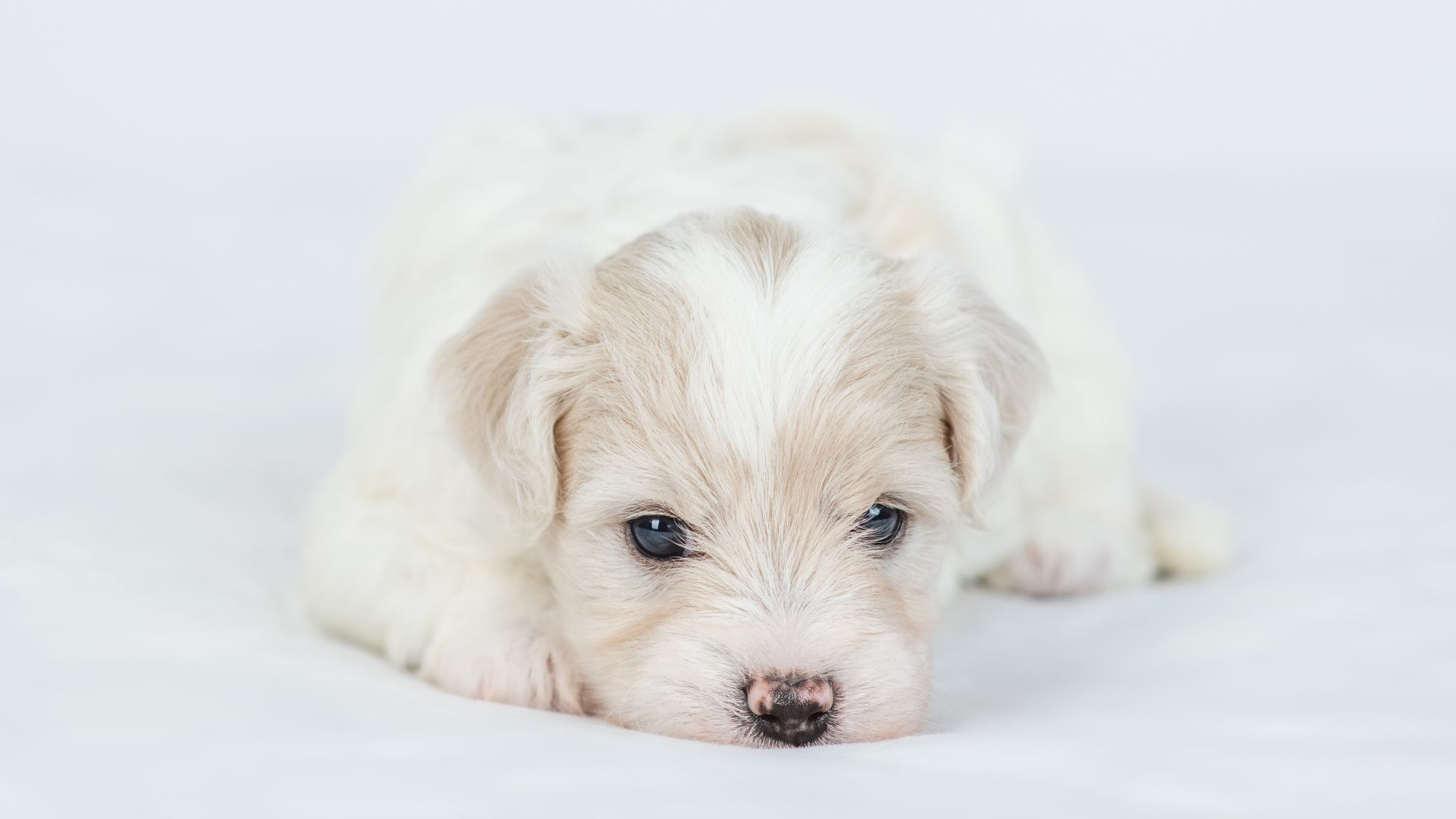
How mental stimulation helps support your dog's well-being
When it comes to mental stimulation in dogs and puppies, you must ensure you’re offering enrichment without overdoing it. A stimulated puppy is an active, curious and playful one and often exhibits high energy levels with a keen interest in their surroundings.
Judging if you’ve got this balance right requires understanding your puppy's behaviour so you can increase or decrease the excitement in their environment. You’ll see increased engagement in play, a willingness to learn new tricks and a generally content demeanour in a happily stimulated dog.
Understimulated dogs can start showcasing undesirable behaviour, like suddenly enjoying destroying your shoes or books. Or you may see a more lethargic puppy that doesn’t want to train or play. By catering to their needs, you can help ensure your dog lives a vibrant and happy life.
What do we mean by puppy stimulation?
Mental stimulation in puppies lays the foundation for a healthy, contented life and helps prevent puppy behaviour problems in the future. As a pet owner, you can help with your dog’s brain development by building long-term habits and ensuring continued growth throughout your dog’s life. You’ll also find that engaging your pet is fun, a great bonding experience, and can help your dog let off some steam or energy.
- Socialisation: Expose them in a positive way to various people, animals, and environments to help build their confidence and reduce fear of the unknown as they grow. This will also help ward off any possible puppy aggression issues.
- Variety in toys: Rotate puppy-safe toys and activities regularly to keep their mind engaged and curious. Like humans, dogs can get bored if they’re faced with the same items repeatedly, so pack some toys up and change them out regularly.
- Variety in training: Along with mixing things up regarding the toys you let your dog play with, try rotating the puppy command list you use during training. Repetition is important to help ensure new behaviours stick, but changing things up occasionally will help keep things stimulating for your dog, so teach them a new trick or action every once in a while.
- Positive reinforcement: Reward desired behaviour with praise and affection when training your puppy, making dog training a positive learning experience. If you use treats, ensure they come from their daily food portion to stay within your dog's recommended daily calorie intake.
- Problem-solving: Puzzle toys and interactive games are excellent puppy enrichment activities that will challenge your new pet’s problem-solving abilities. These toys encourage exploration and creativity.
- Obedience training: This will help support your dog’s mental development and foster discipline. It can also help you care for them by ensuring they don’t eat things they shouldn’t with the ‘leave it’ and ‘drop it’ commands or protect them with proper recall training.
- Physical exercise: Walks, runs, and playtime are as essential as training and cognitive development for your dog’s health. So get up, get out and take them for a walk, play with them in the park or your home and keep them physically and mentally fit.
- Sniffing time: Olfactory exploration—stopping and sniffing everything that strikes them as interesting, other dogs included—is really important for your dog’s mental and overall well-being. Better a sniff-filled shorter walk than a longer or rushed one where your puppy isn’t allowed to take things in.
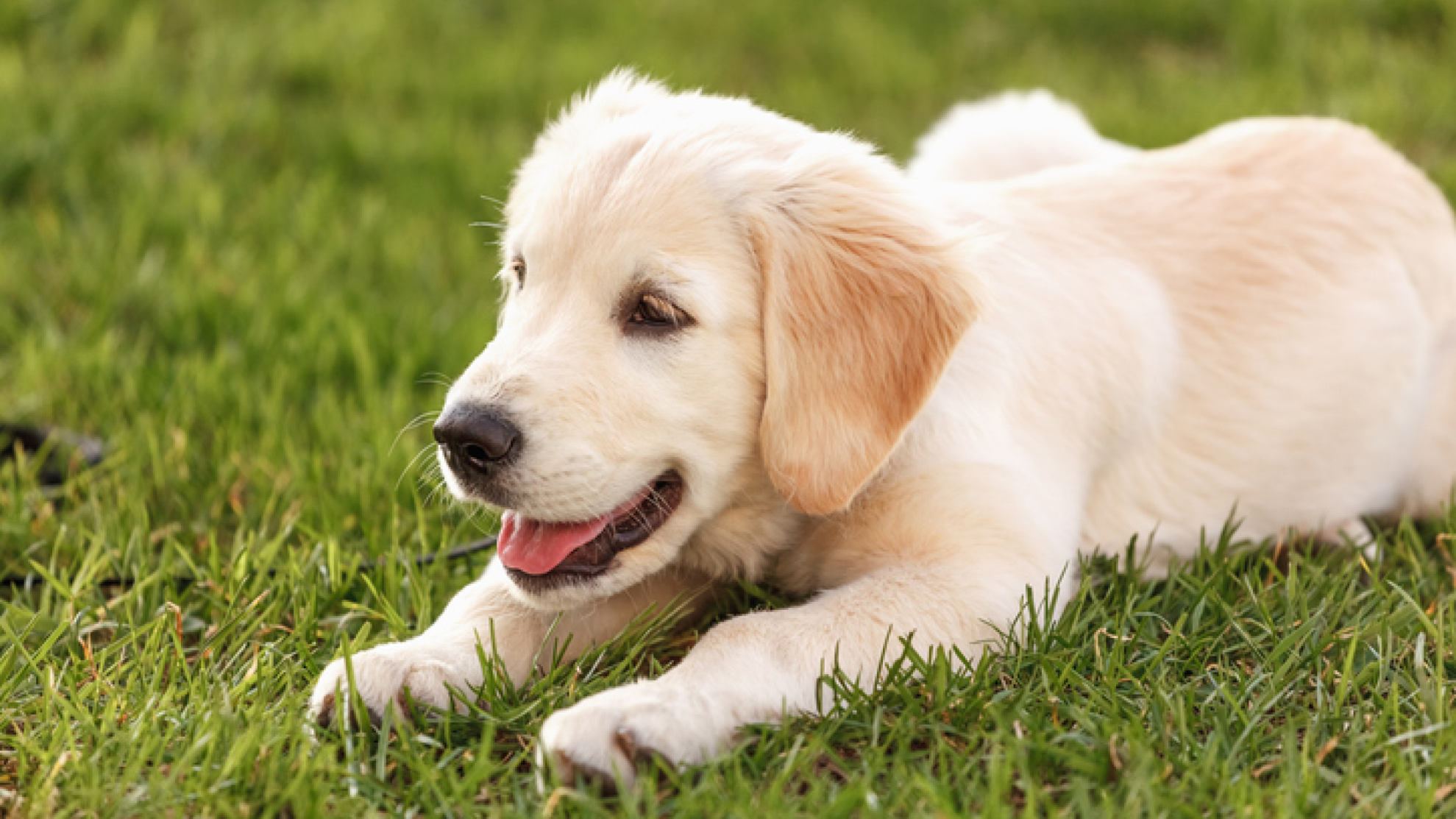
Stimulating mental development at puppy milestones
As they go from puppies to senior dogs, you’ll see your furry family members grow and go through multiple dog milestones that influence all aspects of their behaviour and growth. At each developmental stage, there are different things you can do to help support a well-adjusted, healthy dog. Keeping your puppy or dog mentally stimulated through all these different stages will also help with puppy brain development and health throughout their lives.
These different stages can vary based on the breed and size of the dog. Larger breeds like Dalmatians or Great Danes grow slower and remain in the puppy stages for a little longer. Whilst smaller dogs such as Shih Tzus for Pommeranians, will mature through the stages a bit faster and hit the adult milestone sooner.
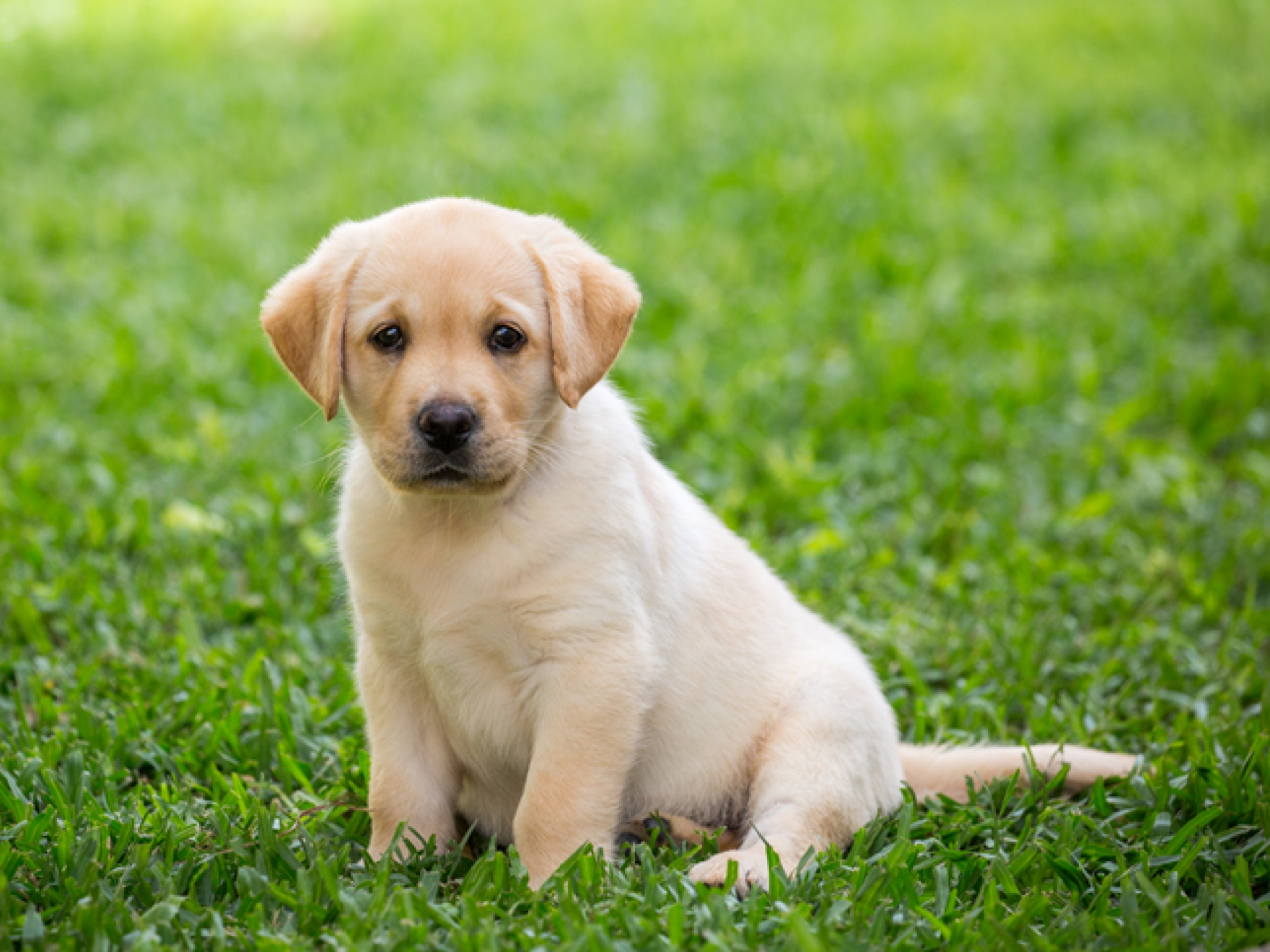
Early puppyhood
Newborn to 4 weeks
Puppies are like sponges; they absorb all the social cues and basic commands around them. This is why any early training should focus on the basic puppy commands like ‘sit’ and ‘stay’. Let them explore the world, bond with you, and have their innate interest perked as they get those first commands down in those early weeks.
Some things you can do to support their growth and keep them entertained include:
- Provide a stimulating environment with various textures and sounds
- Begin basic obedience training with positive reinforcement and treats, always taken from their total daily food allowance
- Allow them to grow at their own pace
This early stage of development varies depending on your dog's size, with larger dogs often taking a little longer to develop.
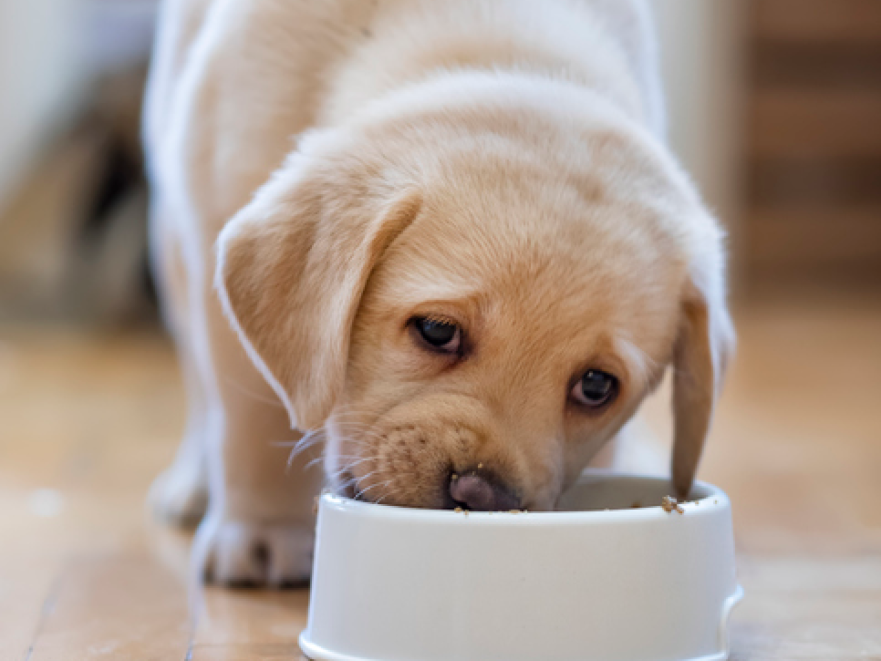
Socialisation stage
4-12 weeks
Your puppy will be interested in everything and everyone (and other dogs, above all). You can start building a socialisation schedule for your pup during this stage. Once fully vaccinated, they can learn to interact with other dogs and people. You’ll also want to continue with training and start making small advancements.
Some engaging things you can build into their routine include:
- Start socialisation with new puppies, people and situations, keeping an eye on their comfort level and ensuring they’re not overwhelmed or overstimulated
- Continue working on basic commands, adding in recall and new commands such as ‘drop it’ and ‘leave it’
- Puppy classes can also boost social and mental development. We think of them as ‘learning’, but they can be fun and stimulating for your dog!
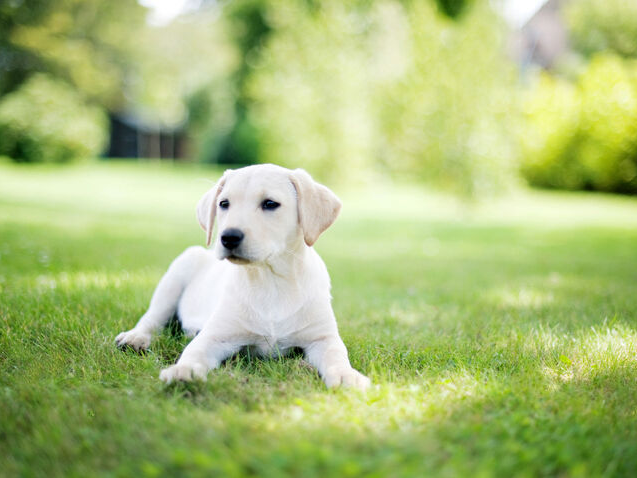
Juvenile stage
3-5 months
As a juvenile, you’ll find that your pup will have a better attention span and be able to focus more on any training—or entertainment—you may be doing. This is when you might think about introducing some puppy tricks. You can also start with some problem-solving skills to help engage their mind. It’s all a game to your puppy.
Here are some ideas to engage your juvenile companion:
- Continue training focusing on advanced commands such as ‘shake’ or ‘rollover’
- Engage in interactive play inside with things like snuffle mats and outdoor activities, such as basic scent training. ‘Play’ is the keyword here.
- Think about including interactive feeding sometimes. Invest in puzzles or slow feeders that make mealtime more challenging and engaging. Introduce problem-solving toys like dog puzzles and activities like ‘hide and seek’
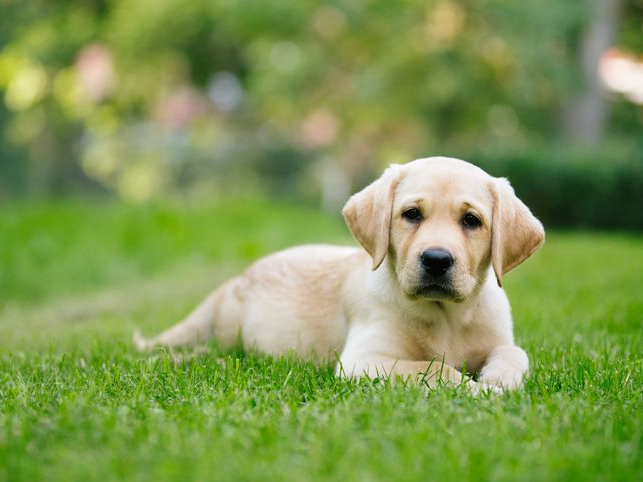
Adolescence
6-18 months
During adolescence, puppies could start testing boundaries or may be more challenging to train or require a bit more patience. You may notice that they don’t respond as well to the dog command list built up previously, or they take a little longer to engage. But on the plus side, their interest can be piqued by more complex tasks.
To keep things rolling, you might want to:
- Maintain a consistent training routine with more advanced tricks such as ‘bow’ or ‘walking backwards’ and other mind-enrichment
- Challenge your dog with more complex puzzles and games like fetch
- Consider enrolling them in advanced obedience classes. These can be a great way of keeping your dog’s mind challenged.
Note: Different dogs will reach adolescence at different ages, with smaller dogs like Maltese moving to adolescence at 6 months. Medium-sized dogs like Border Collies come into adolescence at about 7 months. Larger breeds like a Greyhound will reach adolescence at 8 months, and giants like Great Danes will reach it at around a year old.
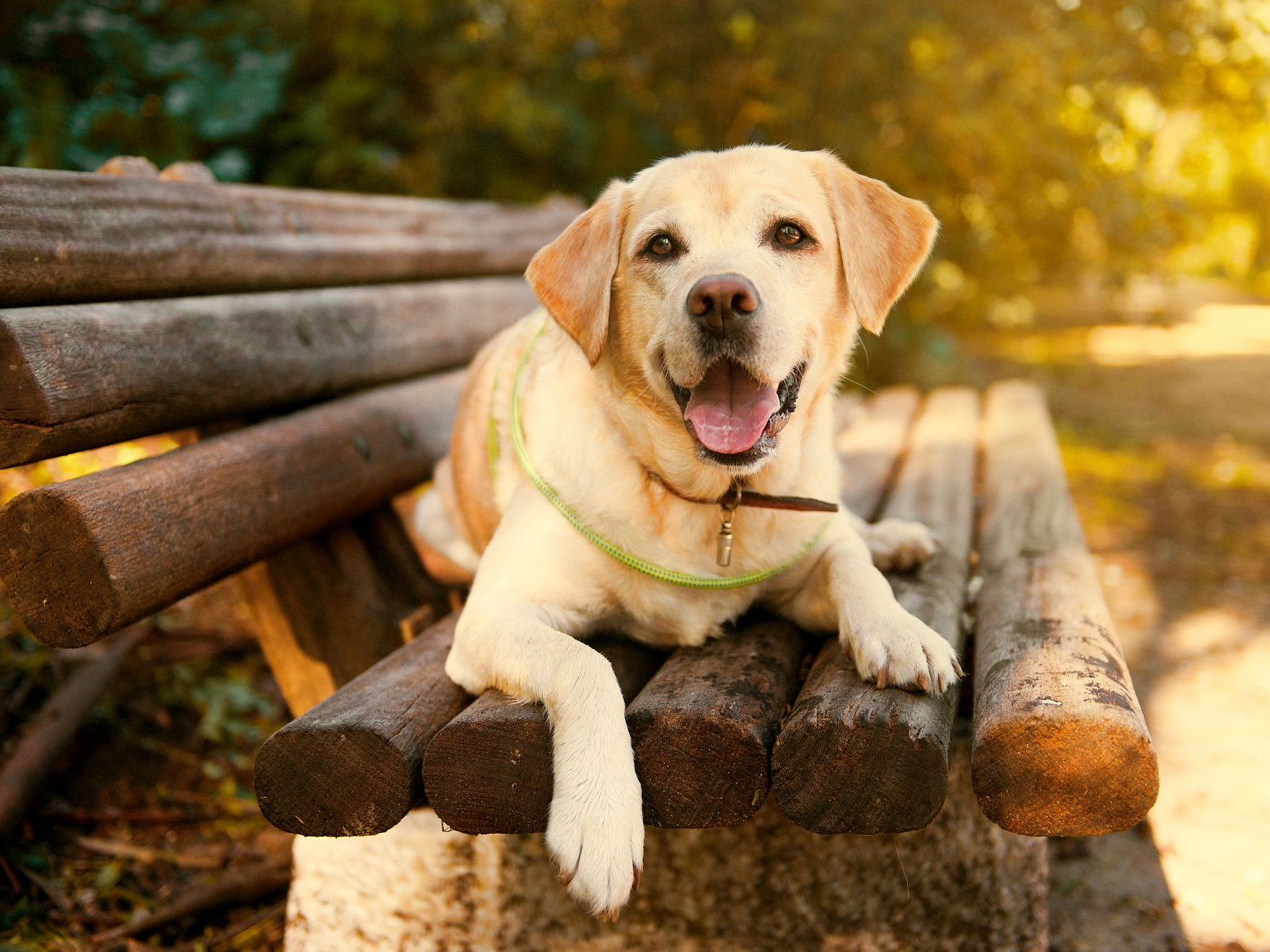
Adulthood
1-8 years
Once they’re into adulthood, you’ll notice they’re more mature, which helps them understand more dog commands, interact with their favourite humans and complex problem-solving. They also benefit from continuous mental stimulation to maintain and support their cognitive abilities.
Some things to do to help ensure your dog is content include:
- Keep your dog mentally engaged with small changes in their routine and new experiences
- Introduce advanced brain games and puzzles. You’ll find that you can get puzzles that increase in difficulty to help your dog increase their problem-solving skills.
- Encourage problem-solving and advanced mental stimulation through agility training
Note: Different dogs will reach adulthood at different ages, with smaller dogs like Chihuahuas moving to adulthood at 8-10 months. Medium-sized dogs like an Australian Shepherd reach adulthood at about 12 months. Larger breeds like Retrievers will reach adulthood at 15-16 months, and giants like Saint Bernards will reach it at 18 months.
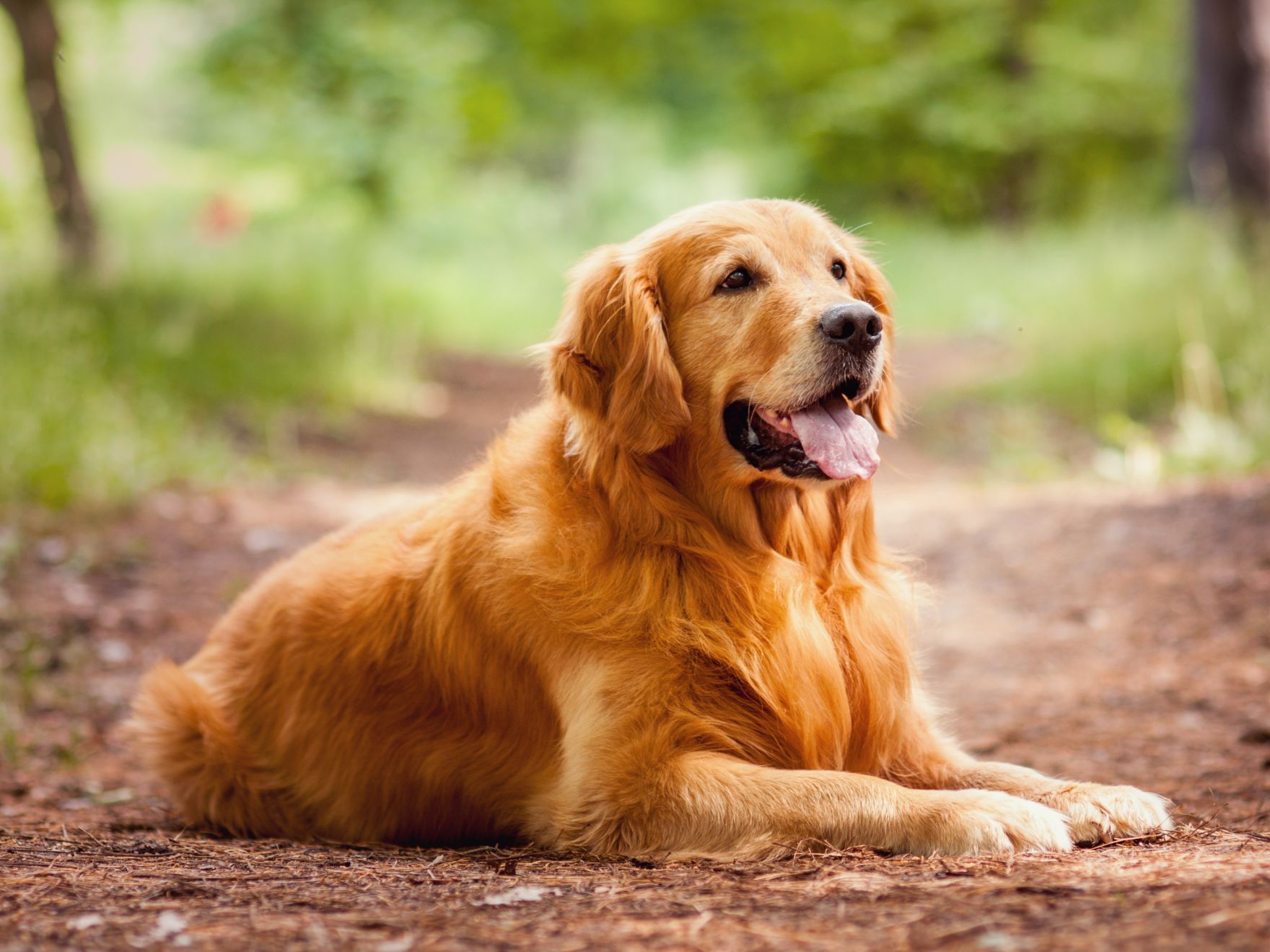
Mature and senior dogs
8+ years
In their later years, dogs may start to face cognitive decline. If you’ve worked mental stimulation into their routine, it should be easy to keep this up and help head off any large decline in dog cognition. Plus, if you continue with mental exercises specifically for dogs, it can help keep their minds sharp into their twilight years.
Some areas to focus on:
- Engaging in dog enrichment activities through keeping up with obedience and trick training
- Include puzzles of lower difficulty levels in their routine
- Go at the pace that suits them and give them time to rest
Note: Different dogs will mature and become senior dogs at different ages, with smaller dogs like Yorkshire Terrier will be seen as a senior dog at about 12 years old. Medium-sized dogs like Siberian Huskies are considered senior dogs at about 7-10 years old. Larger breeds like Rottweilers will become senior dogs at about 8 years old, and giant breeds like Great Danes will reach it at 5-6 years old.
Time to play: eight brain games for puppies or dogs
To help your puppy or dog stay mentally stimulated, here are some puppy mental exercises and brain games, toys and activities for puppies that you can use to help engage and develop a dog’s or puppy's brain.
Fill a toy with dog-adapted treats and let your puppy work to extract the contents. Use this game sparingly, always subtracting any treats from the recommended daily calories for your dog to help avoid canine obesity. Or, use a portion of their food in the toy.
Train your puppy to pack their toys into their box or a particular place in your house. It engages their mind and is a good way to get them to help you keep your house clean.
This is a great puppy mental stimulation toy to help challenge your pup's problem-solving skills. But always ensure you remove any treats given when playing from your dog’s recommended daily calories to help keep them in good shape.
Use household items like chairs, broomsticks, and blankets to set up a mini agility course in your living room. Agility courses like this can be great puppy mental stimulation games.
Invest in interactive puppy mental stimulation toys that react to your puppy's moves, offering endless entertainment. You can also create DIY dog puzzles using things you have at home.
Teaching your dog to understand the names of their toys is a great mental game for puppies. Start with a single toy, play with the toy and your dog. Whilst playing, vocalise the toy's name. Over time and with praise, your dog will be able to connect the verbal name with the toy.
Every owner would love for their dog to talk to them, and with dog talk buttons, you can do this. Start with a few buttons that include commands or words they already know or favourite words like ‘walk’ and then expand as they get used to using the buttons.
Hide treats under a cup with two other empty cups next to it and let your pup use their nose to find the treat; this is called the ‘shell game’. Treat games are fun, engaging and mentally stimulating for your dog; just ensure you take any treats used from your dog's daily food intake or their recommended daily calorie intake. You can also use other scents, not just treats but plants, essential oils or other smells, making sure they’re safe for dogs, in different hiding places to engage your pup's nose.
Bonus idea: Play a game of hide and seek with your dog sometimes, hiding toys or treats for them to find. It also taps into their natural hunting instincts, builds their cognitive skills, prevents boredom and frankly, increases your dog’s joy.
Mental enrichment is a vital component of your dog's overall well-being. Ensuring you incorporate mental stimulation into your training and dog exercise routine from an early age with age-appropriate activities will ensure you support your furry family member’s mental development and health. Plus, it will help build a stronger bond between you and your pup, so start today and let your pup's mind shine as brightly as their wagging tail!
Related Articles
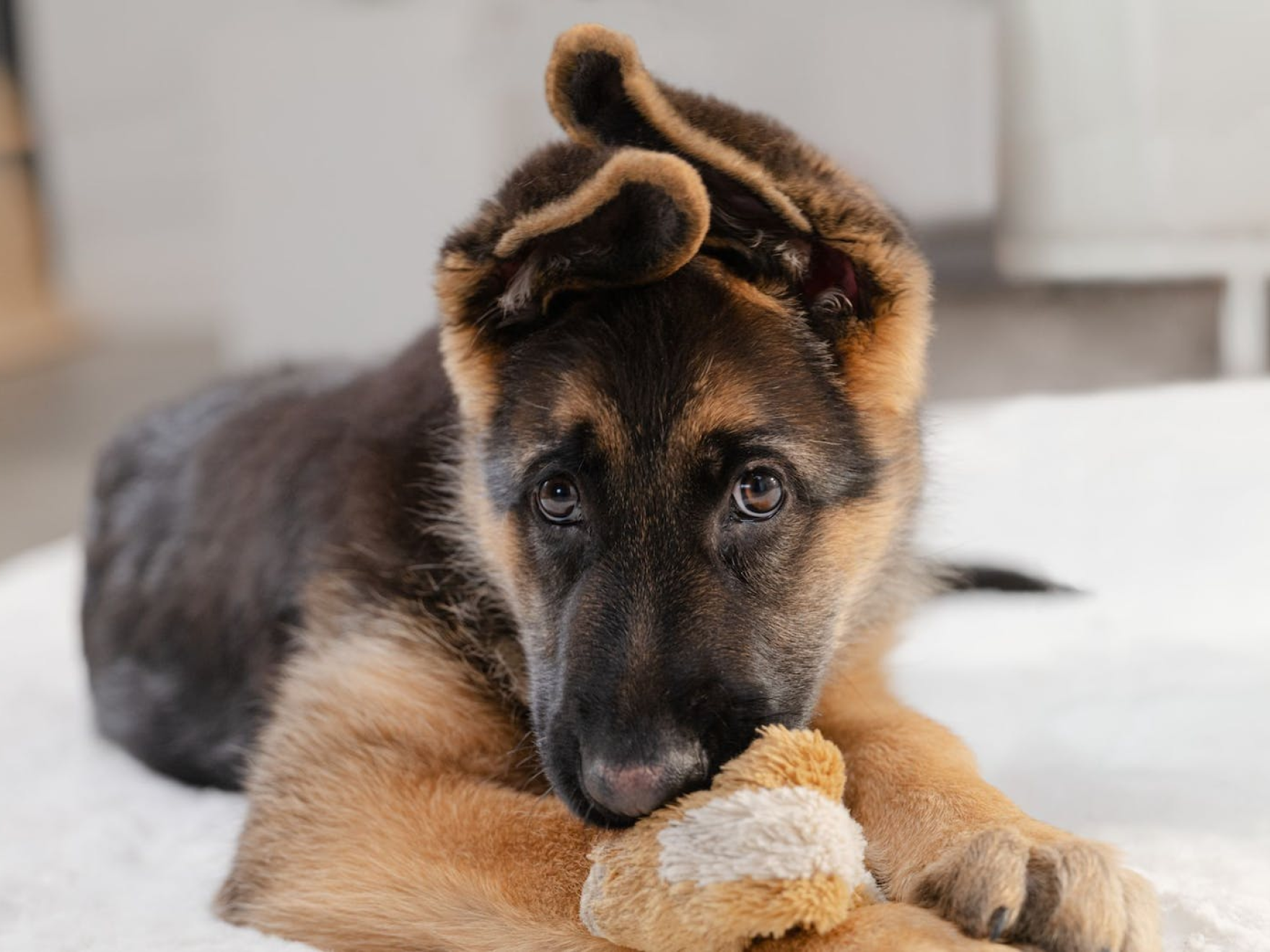
Puppy brain development
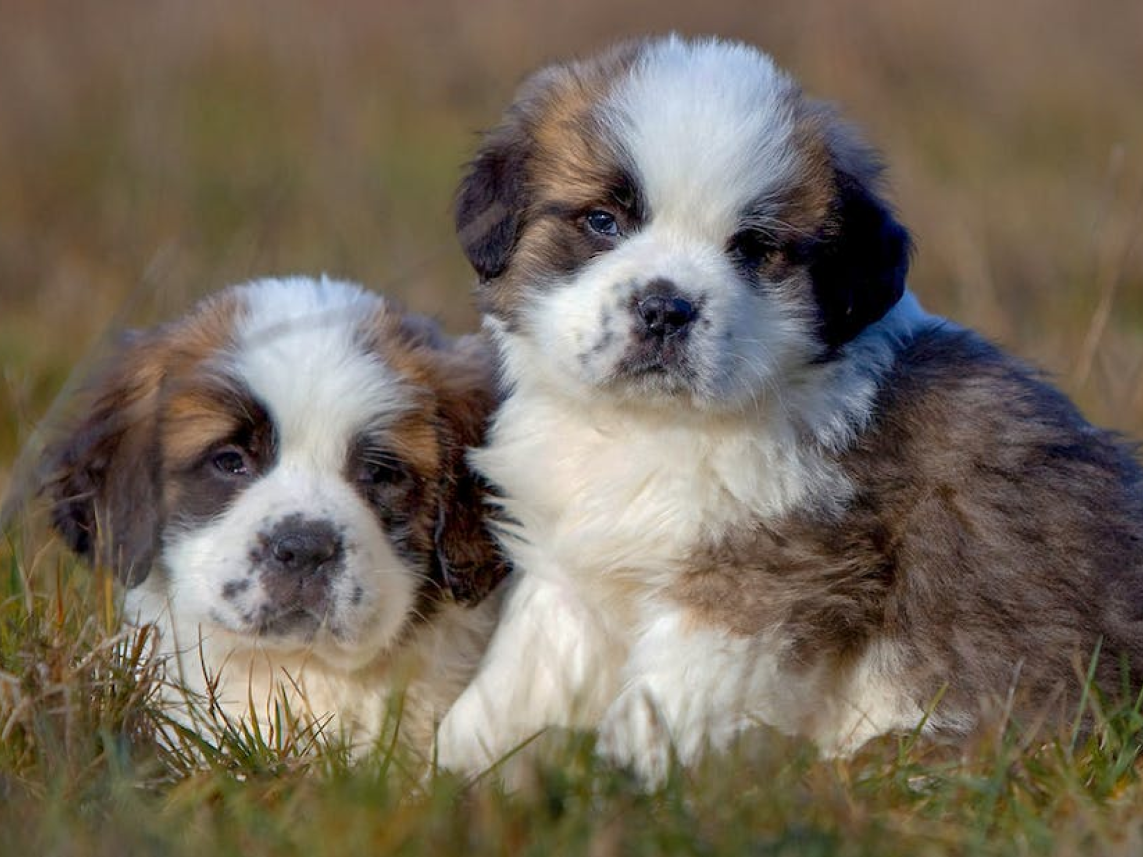
The key stages of puppy growth
Like & share this page